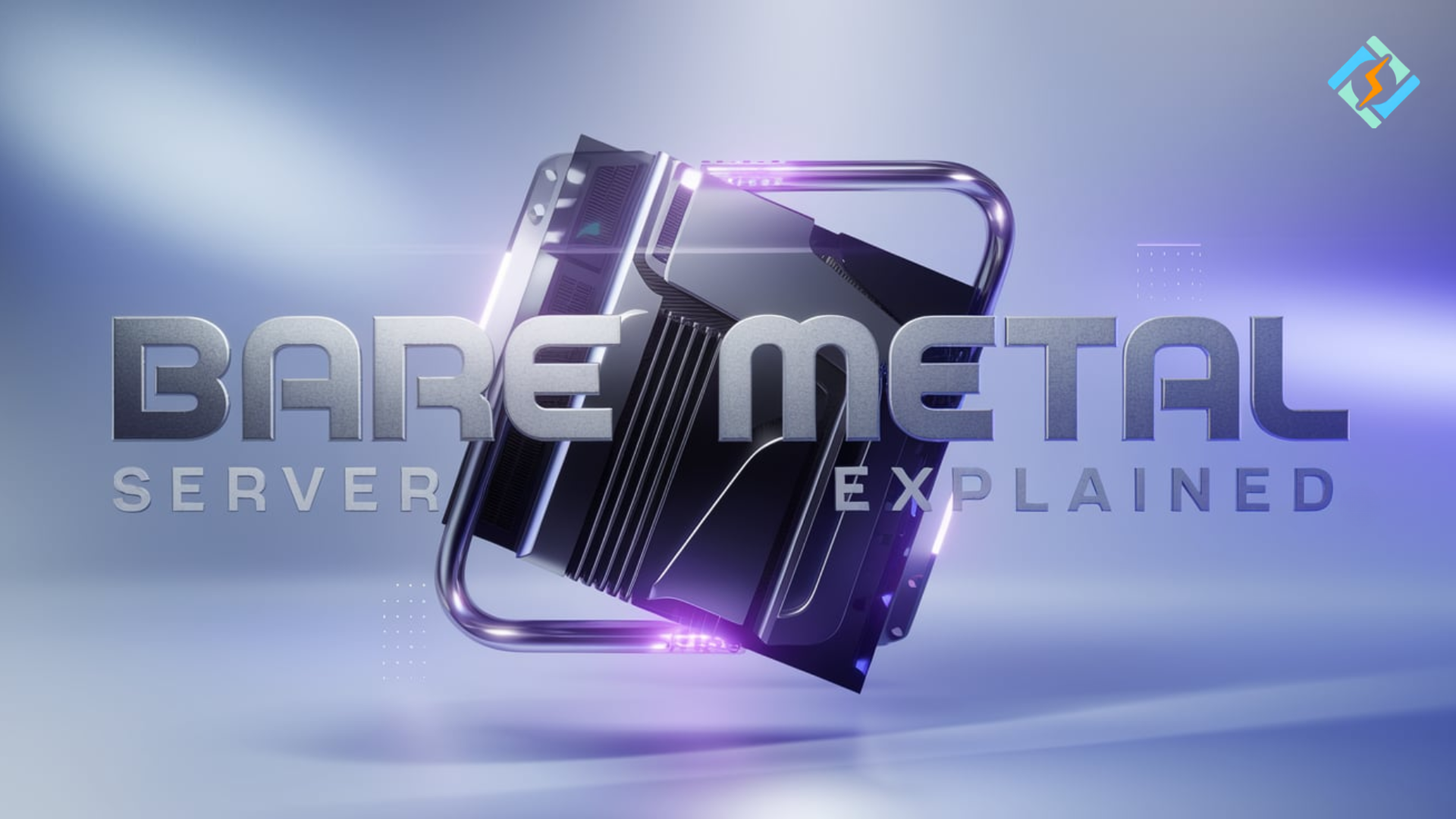Bare metal server has become the new favorite for companies who want high-performance security and complete control over the hosting environment. Essentially, unlike virtual servers with a virtualization layer through which all processes run, a bare metal server is dedicated, and physical hardware with no virtualization layer at all-in consequence leads to optimized resource distribution, reduced latency, and superior performance. Bare metal hosting is indeed a gold treasure for any company utilizing highly trafficked applications or security that cannot be compromised.
In this guide, we describe bare metal servers, delve into some of the top benefits, and understand how CyberPanel supports bare metal infrastructure to meet modern business needs. This guide covers everything you may need to know about bare metal server hosting, whether changing your server or for the best bare metal server hosting providers with unlimited data.
Let’s dive into the world of bare metal servers!
Bare Metal Server Definition
A bare metal server is a single-tenant physical server that does not share resources with any user. Unlike cloud-based virtual servers, which will share the use of CPU, memory, and storage with other virtual machines (VM), bare metal servers are dedicated solely to one customer.
This setup prevents the “noisy neighbor” effect common in shared hosting environments and allows for a more consistent and powerful performance. Bare metal servers would be best for high-performance applications, databases, gaming servers, or any workload that requires so much computing power.
Advantages of Bare Metal Servers
Zero Latency and Fast Processing: Bare metal servers enable direct access to hardware resources, which minimizes latency and processing speed.
Get exclusive access to all things tech-savvy, and be the first to receive
the latest updates directly in your inbox.
Maximum Security: Bare metal servers are secluded from other tenants, so they ensure maximum security, an important must for organizations dealing with sensitive data.
Complete Control: Here a user can have access to all of the hardware, configure his own environment, choose an operating system, or fine-tune performance settings.
Scalability: Bare metal providers usually offer flexible configurations, meaning that businesses would be able to scale up resources if growing demands are met.
Customizability: You don’t share resources on a bare metal server; therefore, you have total customization possible in software and resources. It is highly suitable for the most specific applications and even environments.
Bare Metal Server Hosting
Bare metal server hosting is the service provided by hosting companies leasing dedicated, physical servers to customers. This hosting ensures that users will gain sole access to the server’s hardware resources, offering a high degree of customization and control over the server environment.
Bare metal server hosting is an often preferred choice for businesses with specific hardware or software requirements, data security needs, or high-performance applications. It lets you install software, your hardware configured to optimal levels, and also handle even more demanding workloads without the virtualized overhead.
Bare Metal Dedicated Server
A bare metal dedicated server is a way of referring to a bare metal server. In this type of server, there exists only one tenant, and direct access is given to the hardware of the server, free of any kind of virtualization. Bare metal dedicated servers offer a form of customization to businesses that allow for a specific configuration of CPUs, RAM, storage, and networking tailored based on the requirements of the workloads of their businesses.
Because of the lack of a virtualization layer, resources are not shared, and the servers exhibit performance at a high level, with improvement in security aspects and resultantly more predictable and stable server behavior. Such servers can be used for applications that include hosting huge databases, servicing high-traffic applications, or running specific business applications.
Bare Metal Server Architecture
Bare metal servers are organized along the lines of fully dedicated, physical hardware for one user. It does not have a layer called virtualization in between, hence a bare metal server is closest to direct hardware access. As a result, you can receive the highest possible performance in an environment, and the possible components are listed below:
CPU/Processor:
The CPU, or central processing unit, is the brain of the server and does all the computing of the server. Bare metal servers are available with different processor options, ranging from a low-end CPU used for general workstation-type workloads to multi-core processors utilized in intensive applications.

Customization: Customers have a choice of choosing a processor based on the requirement of their workload. For example, applications requiring multi-threading capabilities for analytics of data and so on, or single-thread performance for such specific requirements.
RAM:
RAM holds data temporarily, allowing quicker accessibility and use of the data, and processes the same with multitasking. A bare metal server dedicates its RAM entirely to one tenant for peak efficiency and speed.
Capacity Choices: Many configurations give the consumer the ability to build the memory needed to support everything from the simplest applications to some of the most memory-intensive processes, such as machine learning or big data processing.
Storage (Disk Drives):
The storage consists of flash-based SSDs or HDDs, with the option for speed through the use of SSDs or high-capacity, less expensive storage through the use of HDDs.
RAID Configurations: All bare metal servers offer RAID (Redundant Array of Independent Disks) configurations to allow for data redundancy, performance boosts, and fault tolerance against hardware failures that would lead to data loss.
Network Interface:
Bare metal servers bring the unique option to access a network, which is often dedicated to specific interfaces for high-bandwidth, latency-friendly, and secure access.
Redundant Networking Options: Additional configurations are available that add more redundancy, can support private networking, or enable advanced security protocols such as VPN.
GPU:
In addition, bare metal servers may apply to applications that include parallel processing such as AI, machine learning, high-end gaming, and the like, which may also be equipped with a Graphics Processing Unit or GPU to enhance its computational capability and process speed.
Add-ons: Add-ons are optional, where one just adds the GPU when it is needed as this may give different kinds of workloads that are to be implemented.
Power Supply and Redundancy:
Durable and Reliable Power Supply with Redundant Options: Most bare metal servers have a reliable power supply with redundant options that minimize the possibility of any downtime or halt and therefore ensure continuous operations in critical, mission-oriented applications.
Cooling Systems:
Since high-performance applications generate heat, most of the bare metal servers incorporate advanced cooling systems, which might be in the form of liquid cooling or high-efficiency fans to maximize server performance.
Motherboard and PCIe Slots:
Of course, the heart of it all remains the motherboard, which becomes central to everything. A step further into possible expansions, PCIe slots would most likely make this possible: expand storage or drives, high additional storage and network cards, or any number of GPUs for graphics, giving users even greater options for customization in specific needs.
Initial Bare Metal Server Configuration
Bare metal server configuration is considered to be a hardware as well as software configuration step so that performance is enhanced and security is added. What is involved is described step-by-step below:
Hardware Configuration: Select Specific Hardware Configurations: Select processor type, GPU requirement if you have one, and size in terms of memory.
OS Installation: It can be installed as Linux distributions (Ubuntu, CentOS, Debian) or Windows Server wherein the application compatibility would usually be its selection standard.
Network Configuration: Assign and set up IP addresses, DNS, and firewall rules. In a web hosting application, integration with CyberPanel can help in making the network easier and faster to configure its security parameters.
Security Measures: Active security practices are applied at this level through the inclusion of SSL certificates, access control, and firewalls to keep data and applications safe.
Application Setup: It involves the installation of necessary software, databases, and web servers. Such an installation process is made faster in CyberPanel to accomplish both the easy installation of web hosting and other configured security features along with backup solutions.
Who Should Use Bare Metal Servers?
Bare metal servers are not generally something of an absolute need but a necessity for specific types of applications and users:
High-Traffic Websites: Companies running high-traffic websites, e-commerce sites, or content-rich sites find value in bare metal resources as well as improved reliability
Data-Intensive Applications: Applications using machine learning, big data analytics, or artificial intelligence mean applications need dedicated processing power. Thus, in the case of bare metal servers, they are a necessity.
Regulated Industries: Finance, healthcare, and government come in the category of the kind of industry that is bound by strict standards of data protection. Bare metal servers offer security and control, which are some of the requirements to meet the regulation.
Gaming: For a company that specializes in gaming, having bare metal servers is usually the only way to achieve less latency, instant response, and stable performance at any time; this is a guarantee for an optimal experience in the game.
Pricing of Bare Metal Servers
The bare metal servers are priced relative to several considerations: the type of hardware configurations, bandwidth, and whether it is managed or unmanaged servers.
Entry-Level: Good entry-level server for small applications will cost between $100-$200 per month.
Mid-Range Servers: For the mid-range traffic business, the mid-range configurations fall between $200-$500 per month.
High-End Servers: The high-performance bare metal server usually starts at $500, contains GPUs, and can cost more than $1,000 a month.
Managed Services: A bare metal server with managed services will not be inexpensive as there would be inclusions of maintenance, updates, and support from the provider.
Bare Metal Server in Cloud Computing
Bare Metal plays a special role in cloud computing which gives a flavor of cloud scalability with dedicated hardware resources. Most cloud service providers, including AWS and Google Cloud, provide bare metal instances that are pretty easy to work with along with other cloud services. This hybrid approach allows businesses to use bare metal for their core operations while using the cloud for scalability – an aspect in which balanced computing comes into play.
Bare Metal Server vs Cloud
Bare Metal Servers offer dedicated resources hence high performance, security, and customization; cloud Servers offer scalability and savings through shared resources. The differences appear thus:
Performance: bare metal servers have the tendency to have superior performance due to dedicated resources, whereas cloud servers are flexible but could offer lower consistent performance.
Cost: Bare metal servers are highly priced due to the fact that they use exclusive hardware. Cloud solutions, however, come at a lower cost since resources in the solution are shared.
Use Cases: In places where workloads are stable and rigorous in nature, bare metal comes into application. Cloud services, however, are suitable for variable and start-up environments where scaling is required.
Bare Metal Server vs Virtual Server
Bare metal servers and virtual serve different purposes related to performance, security, and budget. A bare metal server refers to a physically dedicated server that will solely be available to a single tenant for their use to access the hardware exclusively.
Its architecture makes it suitable for high-demand applications, providing straight and unimpeded access to the CPU, RAM, storage, and network interfaces. Bare metal servers are thus more viable for businesses with the most demanding workloads, be it in data analytics, gaming, finance, and the like. This is because bare metal servers will never lack a hypervisor or virtualization layer, and hence, can operate much better, more stable, and more secure.
Virtual servers, on the other hand, are instances created by splitting resources through virtualization technology from a physical server. Several tenants share these resources, making virtual servers more economical and scalable. However, generally, they are more suited for applications where high security, performance, and access to dedicated hardware are not necessarily a requirement.
Virtual servers could work well with standard web hosting, small-scale applications, or development environments where budget is a significant constraint. However, because of the shared infrastructure, virtual servers may face variability in performance depending on how many users are presently on the same physical machine.
CPU vs GPU on a Bare Metal Server
With bare metal, there will surely be decision-making between the CPU and the GPU based on your workload. CPUs are general-use processors; they process linearly. The reality is, that they tend to treat applications in a primarily sequential process. They are versatile and may even be used to host websites to databases. They best with tasks that require calculations but aren’t necessarily parallel. This means they do not need to process multiple pieces of information simultaneously.
A GPU is a more customized chip and is, therefore, designed for parallel processing; they are highly valuable in applications such as machine learning, artificial intelligence, and data science. Thousands of tasks can be handled due to their architecture during the training of large machine learning models or rendering high-quality graphics.
Choose your server type by the kind of application you have. If it’s just general-purpose computing or standard business applications, a CPU-based configuration should be enough. You would be much better off with a GPU configuration in any process driven by AI, graphics, or data intensity.
Compare Bare Metal Server vs Managed Bare Metal
With managed bare metal servers, even more, is the hosting company’s responsibility to manage and take care of basic needs such as server setup or maintenance and security considerations. This way, applications can focus on the means of finding the funds without having to think about technical aspects of server management, which may be an added pain for businesses to handle.
Managed services are often good enough for businesses that might not have enough skills or just prefer to make things simple. Providers may also have advanced monitoring, regular backups, and support 24/7. This makes managed bare metal servers an attractive alternative for companies that require reliable uptime and security but cannot commit resources to server maintenance internally.
Unmanaged bare metal servers can be set up completely in the user’s control as the provider only commits themselves to providing hardware. This arrangement suits best organizations that have their in-house IT personnel with direct, unfiltered access to the configuration and environment of the server.
You can always expect pure flexibility with unmanaged bare metal servers since companies can install any custom software and configure the server based on specific requirements, although they require hands-on management, troubleshooting, and security protocols from the user.
Best Bare Metal Server Hosting Provider with Unlimited Data
Businesses that have enormous demands for data should consider going for the providers offering unlimited data when selecting bare metal server hosting. Such businesses include media streaming, large data processes, and web applications using significant bandwidth. For the best, providers who offer hardware as high-quality as possible, huge data transfer, and excellent security services are usually at the top of the list. Below is a list of some of the best providers of reliable bare metal servers with options that provide either very high or unlimited data
Atlantic.Net is one of the most experienced USA-based Bare Metal Hosting Provider trusted by businesses for over 31 years, delivering reliable hosting solutions backed by always-available, U.S.-based support. They specialize in managed security and compliance which makes it easy to meet strict HIPAA and PCI requirements affordably. Whether you’re looking for a single Intel or AMD dedicated server or a fully tailored infrastructure, Atlantic.Net can help your business succeed.
https://www.atlantic.net/dedicated-server-hosting/bare-metal-servers

OVHcloud: OVHcloud Known for its cheap prices and speed, OVHcloud provides dedicated bare metal servers with custom-configurable hardware and generous data allowances. Their plans do very well for high-demand applications like gaming and machine learning, offering unlimited transfer on certain packages. They also offer strong DDoS protection; thus, OVH is a great choice for security-conscious firms.
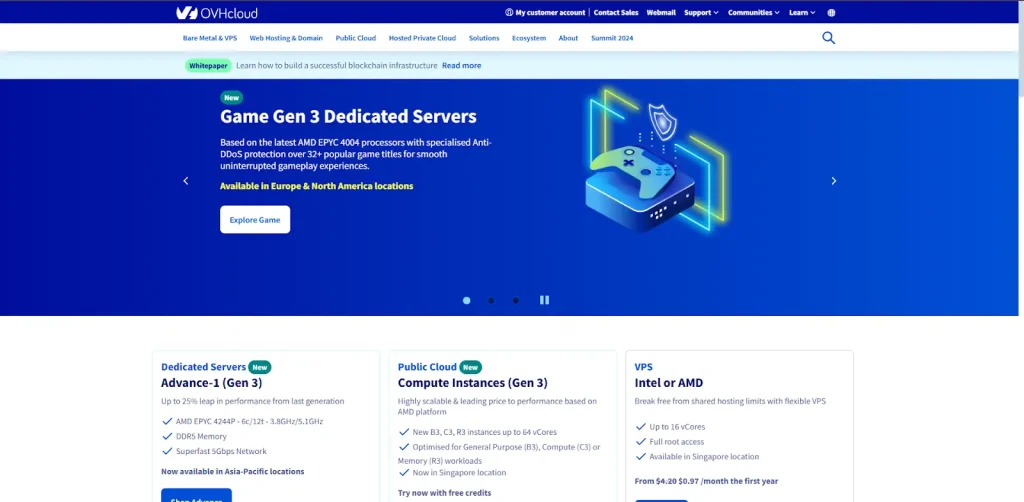
IBM Cloud: IBM Cloud has bare metal servers known to have great customizability and robust infrastructure. Its usage is suitable for AI and big data workloads. IBM has wide-range data transfer possibilities, with high bandwidth packages offered according to the demand for intensive data processing. It boasts top-grade security features, including enterprise-grade support, making it the perfect choice for industries working with sensitive data.
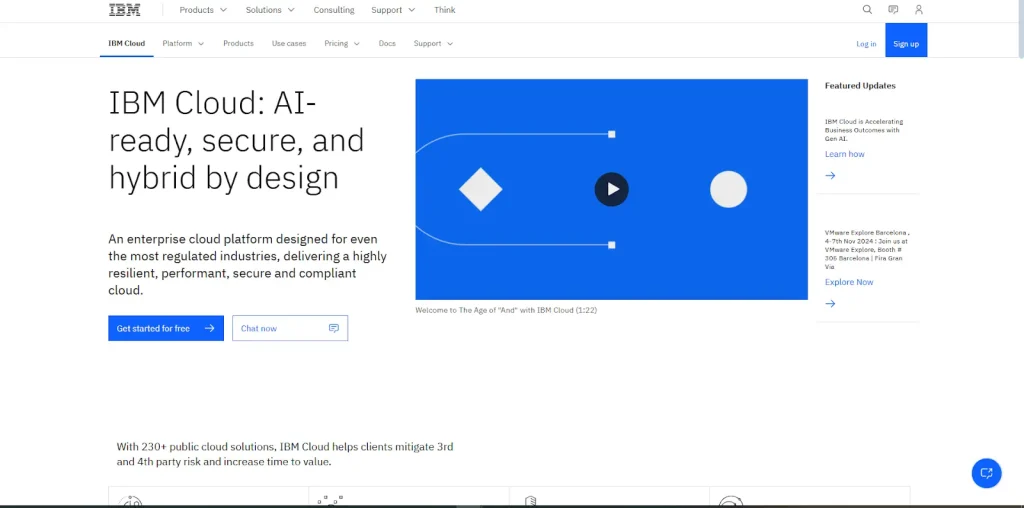
Hetzner: Hetzner is a low-cost provider, based in Germany and is still known around the globe for its flexible and affordable bare metal servers that come with extensive or unlimited data transfer options. Very famous in Europe, Hetzner offers its performance options to various applications and has recognized its data centers to be eco-friendly, therefore ideal for businesses that identify sustainability as an interest.
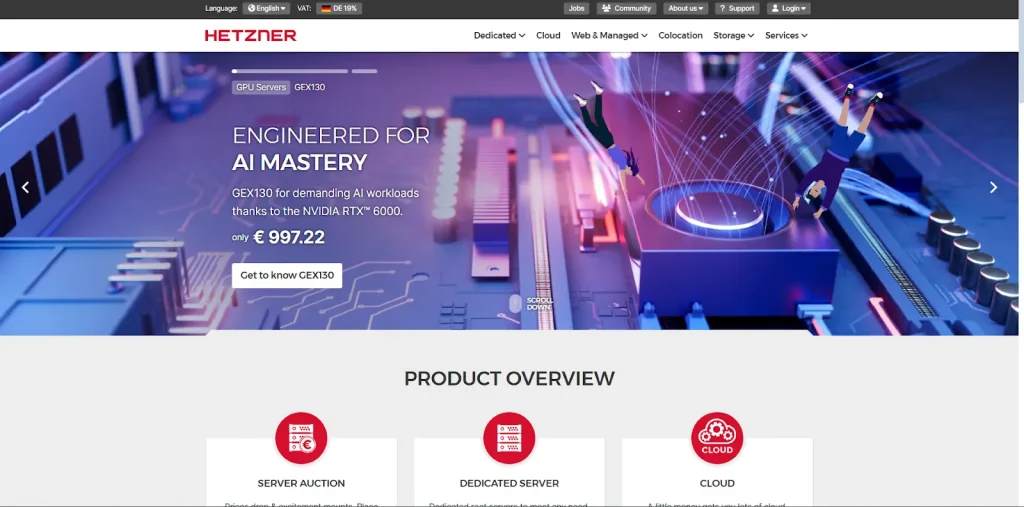
Liquid Web: Liquid Web mostly works with bare metal servers, fully managed high-performance configurations with support. Their solutions are ideal for eCommerce and SaaS applications. They have an unlimited data option while optimizing performance. Liquid Web has assured 24/7 support systems with server monitoring, making it a great choice for off-the-radar businesses that seek server management.
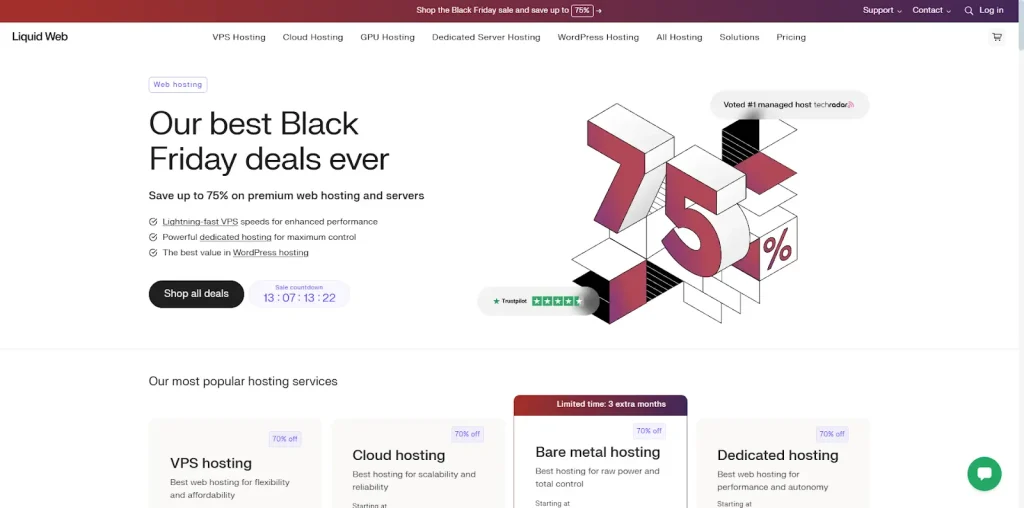
FAQs on Bare Metal Servers
1. What is the bare metal server definition?
This is a physical single-customer dedicated server without virtualization, leaving the full exposure of the hardware resources.
2. How does a bare metal server differ from a virtual server?
While a virtual server will have access to hardware as shared among others, the bare-metal server is a single-tenant server with direct-usable physical servers and is optimal for performance and security.
3. Bare Metal Servers: Do they work for High-Traffic Applications?
Bare metal servers are suited to high-traffic applications due to dedicated resources and superior performance.
4. What is Bare Metal Server Hosting?
Bare metal server hosting allows users to have full access to a dedicated, actual physical server. They enjoy the right to configure it and the handling of resources at their discretion.
5. Can I customize my bare metal server using CyberPanel?
Yes, using CyberPanel, you can fully customize bare-metal servers to make allowance for fully customized configuration of the environment according to specific required performance or security standards.
Culmination: Power Your Business with the Best Bare Metal Server Solutions
Wrapping up, the right choice of bare metal server hosting will impact the performance and scalability of your business drastically. From unlimited data transfer to enterprise-level security, right up to high-performance computing, what more would you need? A reliable bare metal server investment is a game-changer in itself. The best: OVHcloud, IBM Cloud, and Liquid Web. CyberPanel offers flexibility and ease of management towards the full optimization of your server experience.
Don’t settle for less than what your server needs. Choose the robust, highly secure, and high-performance bare metal server to suit your business needs.
Are you ready to scale your infrastructure? Select the right provider today and enjoy all the benefits of seamless, high-performance hosting.
